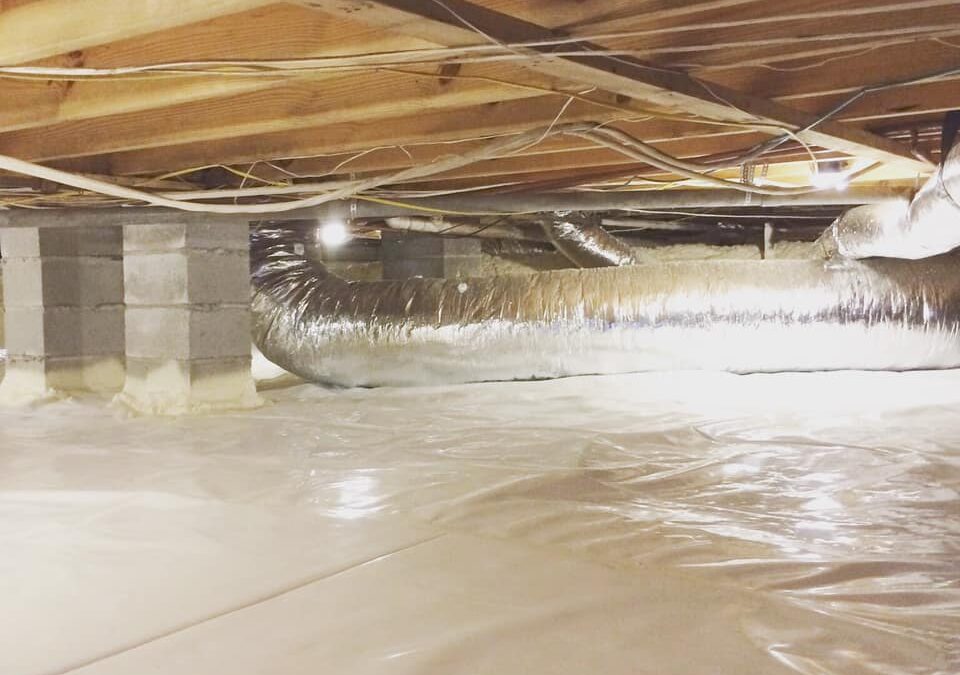Have you seen those popular “Pinterest Fails” where people attempted to DIY the amazing things they saw on the social media site?
There’s a reason why we hire professionals to do some things like waterproofing your crawl space.
Many handymen and handywomen enjoy DIY projects in their homes too, and depending on their skill level, they often do great work. However, there is one home repair project you should think twice about before trying a DIY – waterproofing the space under your home.
Watching home repair shows and online videos make waterproofing your crawl space or basement seem like a fairly simple, straightforward task. But looks can be deceiving.
Let’s talk about a few waterproofing complications you could encounter.
One Size Does Not Fit All
It’s easy to walk into a home improvement store and find a basement/crawl space waterproofing kit. The biggest risk with such a kit is that the manufacturer of the kit hasn’t examined YOUR home to locate possible sources of moisture and damage that may already exist. If you choose to go this route, you may discover that the kit addresses only one cause of moisture when your home may have other hidden issues. You could also find, a few months later, that the products only covered up things like cracks or mold and mildew and left the true source of the moisture hidden. This can lead to more serious problems down the road. What’s worse is that, unlike Columbia CrawlSpace, these kits offer no warranties against such future issues.
Wrong Product = More Damage Later
Because it’s called “waterproofing,” homeowners are sometimes lured by waterproof paint. It makes sense on the surface (haha-pun). You don’t want water and moisture seeping in through the walls of your basement, so apply some waterproof paint. Plus, a couple of buckets of paint and a weekend project seems a lot cheaper than hiring a professional. Give that paint a good, snowy winter or a nice wet spring, and you’ll discover why it’s so cheap. The other side of your concrete walls is still being exposed to moisture. As that moisture seeps in and through the concrete, it brings along a healthy dose of the lime that’s naturally in the concrete. Now you have something like lime soda (but it doesn’t taste so good!), and all those effervescent bubbles are building up behind the waterproof paint. Eventually, those bubbles burst through the paint, resulting in cracking, peeling, and – moisture in your basement.
Sometimes, when it’s clear where water is entering, homeowners will take more drastic measures attempting to “plug the holes and cracks.” The answer here might seem to be sealing the cold joint (the seam where the walls and floor meet) with hydraulic cement. Unfortunately, this creates excess pressure that causes the water to move to other areas. Soon water is coming in somewhere else in the basement or crawl space and waterproofing the space properly will require removing the hydraulic cement, which can only be done by professionals.
Safety Concerns
If you know the space under your home has damage that will require work such as excavation, it is crucial that you hire professionals. When excavating for waterproofing/repair, trenches are usually dug about 8 feet deep. Not only will this require heavy equipment with experienced operators who won’t damage your home further while digging, but you also want professionals who know and will abide by proper safety measures. Deep trenches need correct support to prevent a collapse that could seriously injure workers and damage your home. Digging also requires identification of underground utilities to avoid accidentally hitting water, gas, or electrical lines. This is not a job you want to undertake yourself or leave to an inexperienced friend or relative.
So, what’s the moral of this story?
Go ahead and DIY that fantastic mermaid cake you saw online (and send us pictures!).
But when it comes to your home, contact Columbia CrawlSpace. We are experienced, professional waterproofing and foundation specialists and use only commercial grade products to ensure your home – and your family – are protected.
